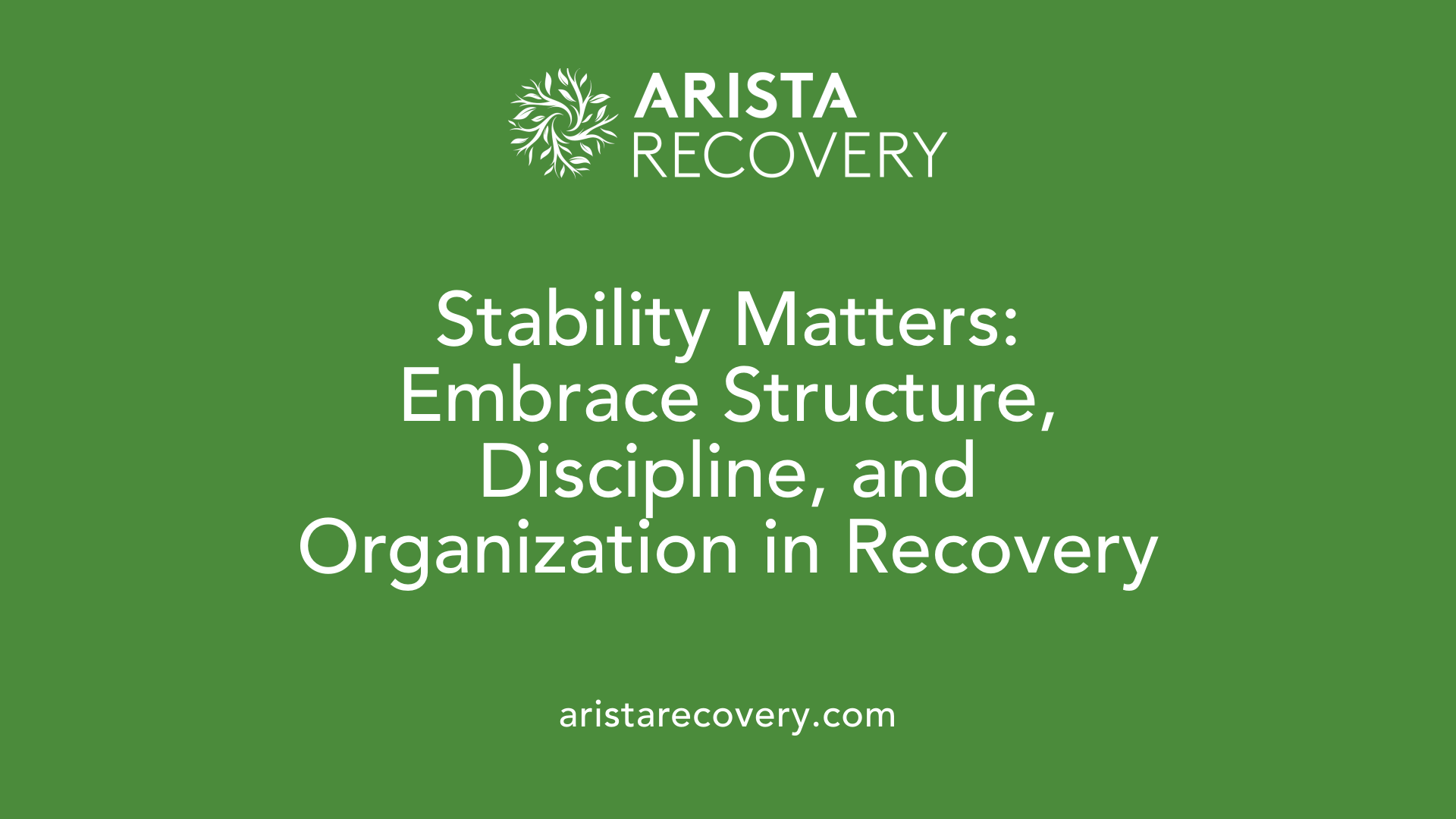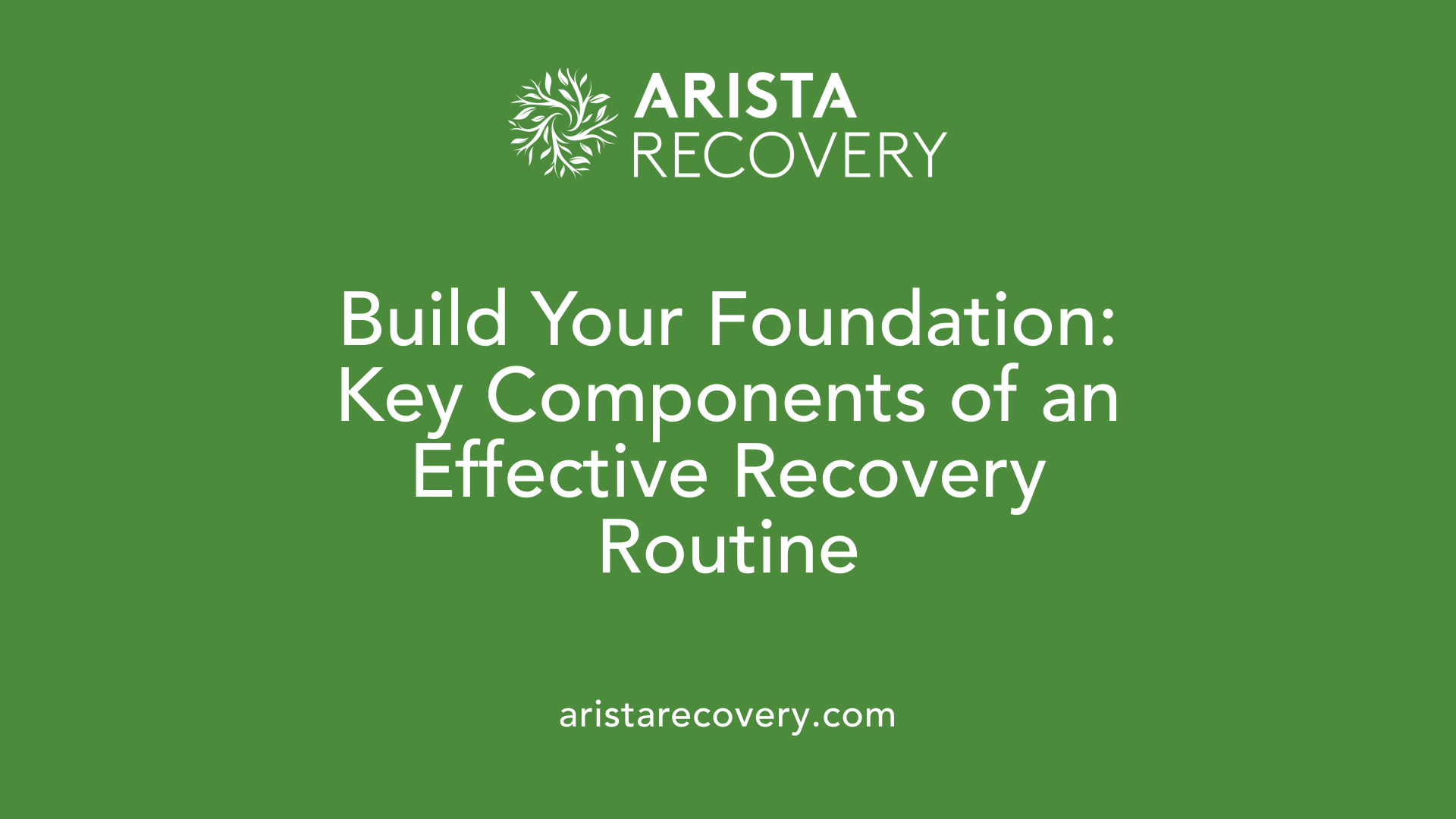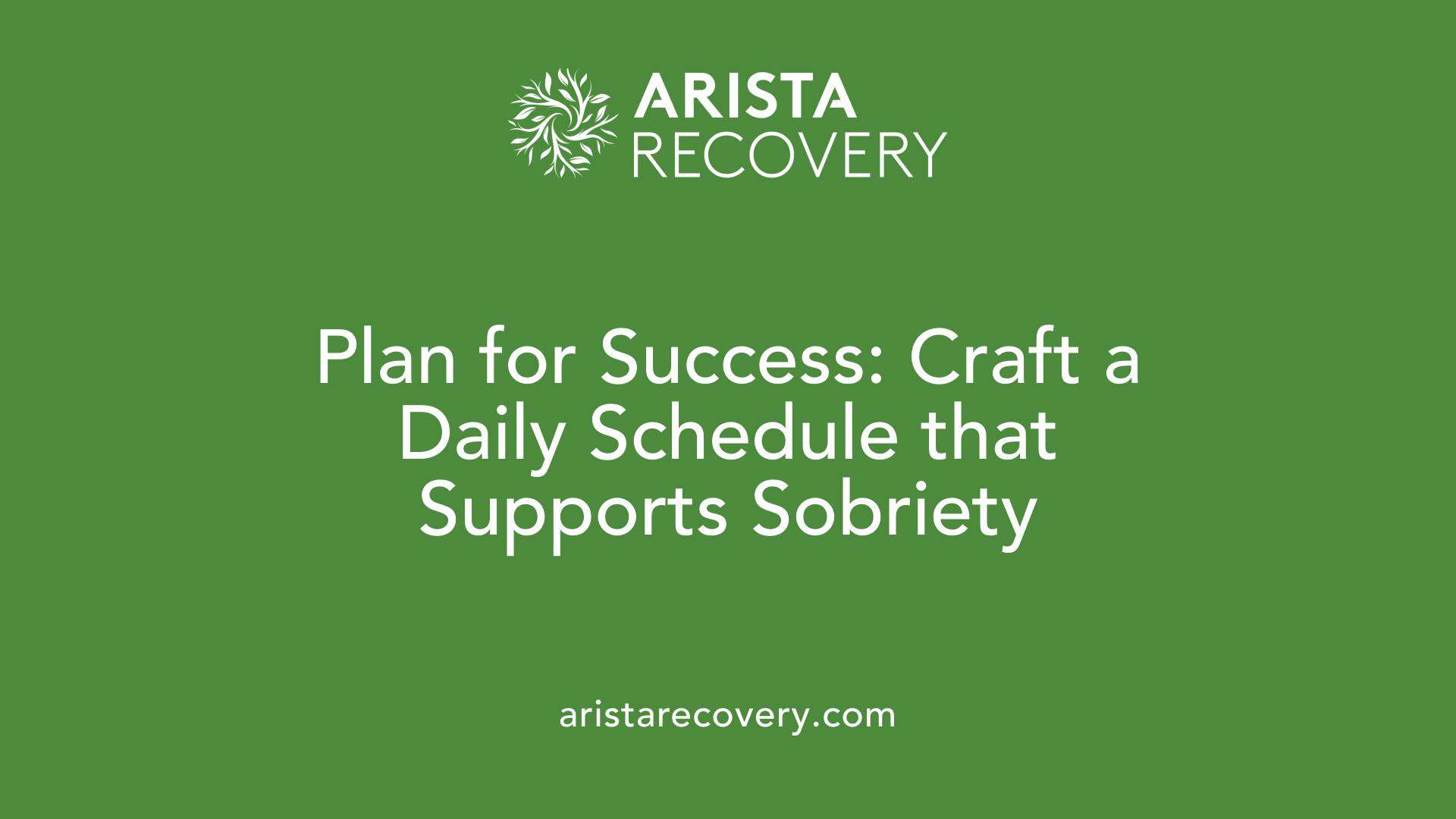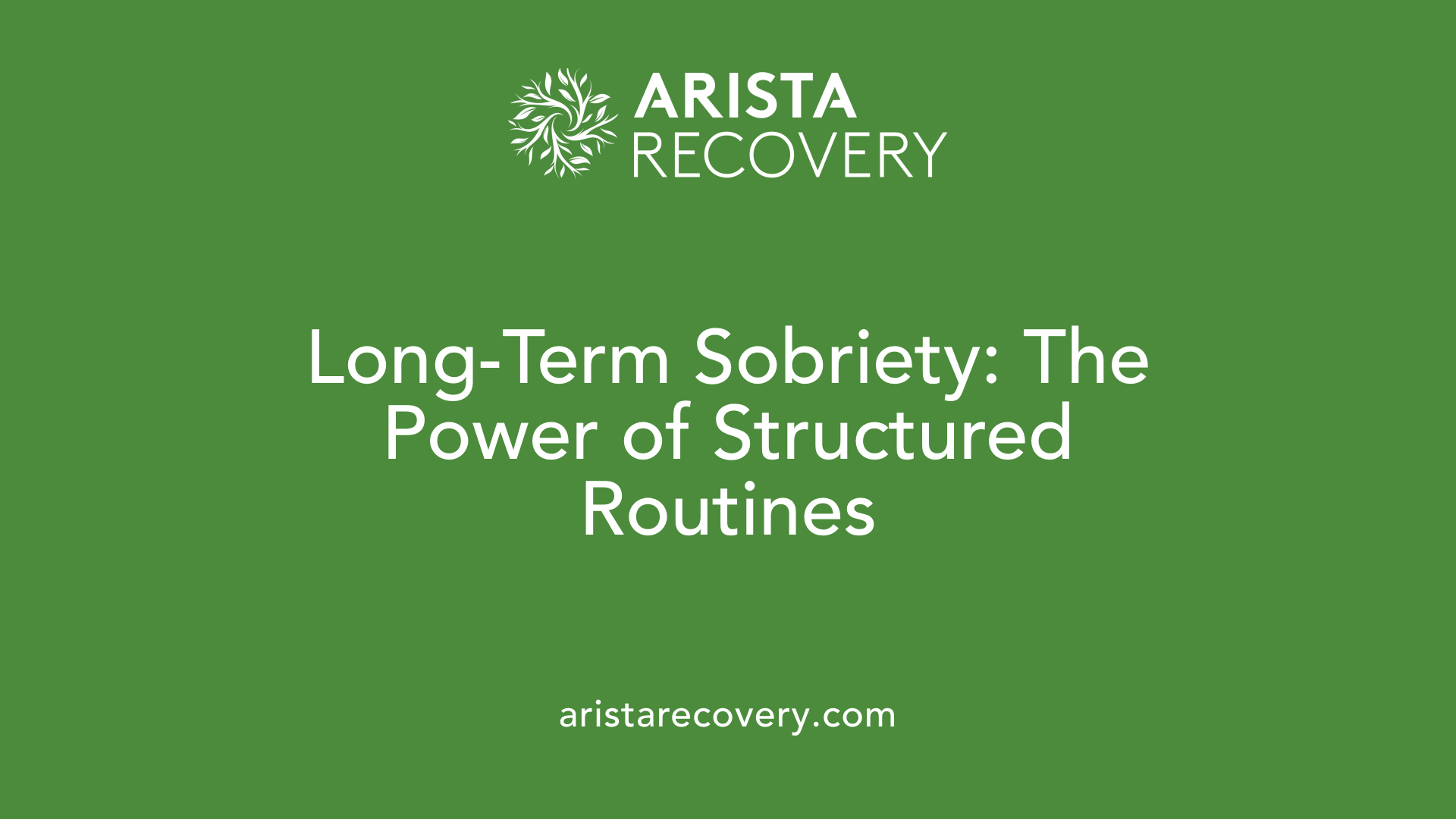Creating a Healthy Routine in a Sober Living Environment

The Foundation of a Healthy Sober Life
Establishing a structured daily routine is a fundamental aspect of sustaining sobriety and fostering overall wellness in a sober living environment. It provides predictability, reduces stress, prevents triggers, and builds resilience, serving as the backbone of long-term recovery. In this article, we explore practical strategies, key components, and the importance of customization in creating routines that support sustained sobriety, emotional stability, and personal growth.
Strategies for Establishing a Healthy Daily Routine
What are some strategies and tips for establishing a healthy daily routine in a sober living environment?
Building a solid routine is a cornerstone of successful recovery. Start by designing a structured daily schedule that includes consistent wake-up and bedtime hours to regulate your body's internal clock. Incorporating regular exercise, whether it's a morning walk, yoga, or workouts, boosts mood and reduces cravings.
Balanced, nutritious meals are important for physical health and emotional stability. Planning meals ahead helps maintain consistent energy levels throughout the day. Engaging in therapeutic activities such as attending support group meetings or individual counseling enhances emotional resilience and provides community support.
Removing triggers and temptations from your environment is crucial. This involves eliminating any alcohol, drugs, paraphernalia, or media that could stimulate cravings. Creating a calm, organized living space with minimal clutter, natural light, and soothing decor fosters emotional well-being and reduces stress.
Developing a strong support network is essential. Cultivate relationships with sober friends, family members, and recovery communities like 12-step groups. These connections provide accountability, motivation, and understanding.
Adding hobbies, mindfulness practices, and self-care routines into your day helps manage stress and promote overall wellness. Activities like meditation, journaling, or engaging in creative pursuits give you healthy outlets for emotional expression.
Overall, maintaining a stable routine that emphasizes responsibility, self-growth, and social connection forms a resilient foundation for long-term sobriety. Consistency and discipline in your daily activities empower you to navigate recovery confidently and sustainably.
The Role of Structure, Discipline, and Organization in Recovery

Why are structure, discipline, and organization important in recovery routines?
In recovery, establishing a clear and consistent routine is crucial for rebuilding stability and maintaining sobriety. These elements provide a sense of predictability that counters the chaos often associated with addiction and its aftermath.
Structured routines involve daily activities like attending support groups, practicing self-care, engaging in physical exercise, and adhering to sleep and meal schedules. Such patterns foster a sense of normalcy, which helps individuals regain confidence and self-worth. When routines are stable, they also reinforce emotional balance by reducing feelings of uncertainty and stress.
Discipline and organization enhance personal responsibility. They enable individuals to prioritize their recovery efforts, manage their time effectively, and develop vital life skills such as responsibility, planning, and self-control. For example, maintaining a tidy environment minimizes triggers and promotes calmness, while setting goals supports motivation.
These routines also serve as a buffer against common triggers like boredom and anxiety, which can lead to relapse. Having a structured day gives purpose and reduces impulsive behaviors, strengthening resilience against setbacks.
In addition, social interactions—like participating in group meetings or community activities—are more manageable within a routine, aiding in the rebuilding of social bonds and support networks.
Overall, the integration of structure, discipline, and organization not only stabilizes daily life but also empowers individuals with the tools needed for long-term sobriety, personal growth, and emotional well-being.
Components of a Supportive and Effective Routine

What components should an effective routine include to support recovery and sobriety?
An effective recovery routine involves several interconnected elements that promote health, stability, and resilience. First, consistent self-care activities are essential. This includes maintaining a regular sleep schedule to ensure restorative rest, engaging in physical exercise to boost mood and physical health, and eating nutritious meals to support overall well-being.
In addition, emotional support and accountability are bolstered by regular participation in therapy sessions and support groups such as Alcoholics Anonymous (AA) or Narcotics Anonymous (NA). These opportunities foster community, provide coping strategies, and reinforce commitment to sobriety.
Stress management techniques are also crucial. Daily practices like mindfulness meditation, deep breathing exercises, or journaling help individuals manage cravings, reduce anxiety, and improve mental clarity. Engaging in enjoyable hobbies and social activities reinforces a sense of purpose, connection, and fulfillment.
Flexibility and routine reevaluation allow adaptation to life’s changing circumstances. Regularly reviewing and adjusting routines ensures they remain effective and relevant, preventing stagnation and burnout.
Overall, a structured yet adaptable routine that addresses physical needs, emotional resilience, and social bonds provides a solid foundation for sustaining long-term recovery. This balanced approach supports not only abstinence but also personal growth and well-being in all areas of life.
Planning Practical Schedules to Sustain Sobriety
 Creating a structured daily routine is essential for maintaining sobriety, especially during early recovery stages or transitions into sober living environments.
Creating a structured daily routine is essential for maintaining sobriety, especially during early recovery stages or transitions into sober living environments.
Individuals can effectively support their sobriety by establishing consistent wake-up times, maintaining good hygiene practices, and taking medications as prescribed. Such routines set a foundation of stability and predictability, which help the body and mind adjust to healthier habits.
Scheduling therapy sessions, support group meetings like AA or NA, and regular physical activity creates a balanced framework for daily life. Attending these events consistently boosts accountability, provides emotional support, and fosters community connection.
Balancing treatment activities with self-care and social engagements prevents boredom and reduces the risk of emotional or environmental triggers that might lead to relapse. Incorporating leisure activities, hobbies, or relaxation techniques like journaling or meditation further supports emotional resilience.
Effective planning involves using a written daily schedule with clear goals, including recognizing personal triggers and planning ways to manage or avoid them. This detailed approach increases motivation, focus, and confidence in maintaining sobriety.
A well-designed routine combines treatment, movement, and leisure activities in a way that promotes physical health, mental clarity, and emotional stability. Sticking to this plan fosters a sense of purpose and control, critical elements in successful recovery.
Implementing structured daily routines also involves flexibility. Adjustments should be made based on progress, challenges, and personal preferences, ensuring the routine remains sustainable and motivating.
By thoughtfully planning their days, individuals in recovery can create a steady, supportive environment that minimizes stress, reinforces healthy habits, and lays a strong foundation for long-term sobriety.
Benefits of Structured Routines in Long-Term Sobriety

What are the benefits of maintaining structured routines during recovery?
Adopting a consistent routine during recovery offers many important advantages. One of the primary benefits is reducing feelings of uncertainty and impulsivity, which are common in early sobriety. Having a set daily schedule creates a sense of stability and normalcy, helping individuals feel more in control of their lives.
Structured routines also promote emotional and physical well-being. Regular sleep patterns, nutritious diets, and consistent exercise help manage withdrawal symptoms, improve mood, and reduce cravings. These habits can fend off depression, anxiety, and relapses by fostering a healthy, balanced lifestyle.
Participation in recovery support activities like group meetings and therapy is reinforced through routine planning. When scheduled into daily life, these activities become regular sources of motivation, accountability, and emotional support.
Beyond immediate health benefits, routines nurture self-discipline and self-control. They build resilience and give individuals a clear purpose, which are critical for long-term sobriety. Having routines helps people stay focused on their recovery goals and develop habits that sustain their progress.
In sum, structured routines serve as a sturdy foundation in recovery by supporting overall mental health, reducing relapse triggers, and cultivating a sense of stability, discipline, and purpose—vital ingredients for a lasting sober life.
Building a Lasting Foundation for Sobriety
Creating a healthy routine in a sober living environment is more than just a daily checklist—it's a comprehensive strategy that fosters stability, resilience, and growth. By incorporating consistent sleep, nutrition, exercise, and therapeutic engagement, individuals lay a sturdy groundwork for long-term sobriety. Supporting this structure with a supportive community, environmental organization, and personal hobbies enhances emotional wellness and reduces triggers. Tailoring routines to individual needs ensures they are relevant and sustainable, making recovery a meaningful journey rather than a fleeting effort. Ultimately, a well-crafted routine becomes a vital tool, empowering individuals to face life's challenges with confidence, clarity, and a renewed sense of purpose.
References
- Routines That Promote Sobriety - Recovery at the Crossroads
- How to Create a Daily Routine for Sober Living
- Develop a Healthy Daily Routine in Recovery
- How to Create a Supportive and Healthy Sober Living Environment ...
- Building Daily Routines to Support Overall Wellness in Sober Living
- The Ultimate Guide To Thriving In Sober Living Homes
- Creating a Healthy Routine in Sober Living: Why Structure and ...
When mental health challenges and addiction intersect, it can feel isolating. At Arista, we offer compassionate, evidence-based, and trauma-informed care to help you heal, grow, and move forward.
You’re not alone in this.
When mental health challenges and addiction intersect, it can feel isolating. At Arista, we offer compassionate, evidence-based, and trauma-informed care to help you heal, grow, and move forward.
Support that moves with you.
You’ve taken a brave first step. At Arista Recovery, we’re here to help you continue with best-in-class care designed for long-term healing and support.
.webp)






